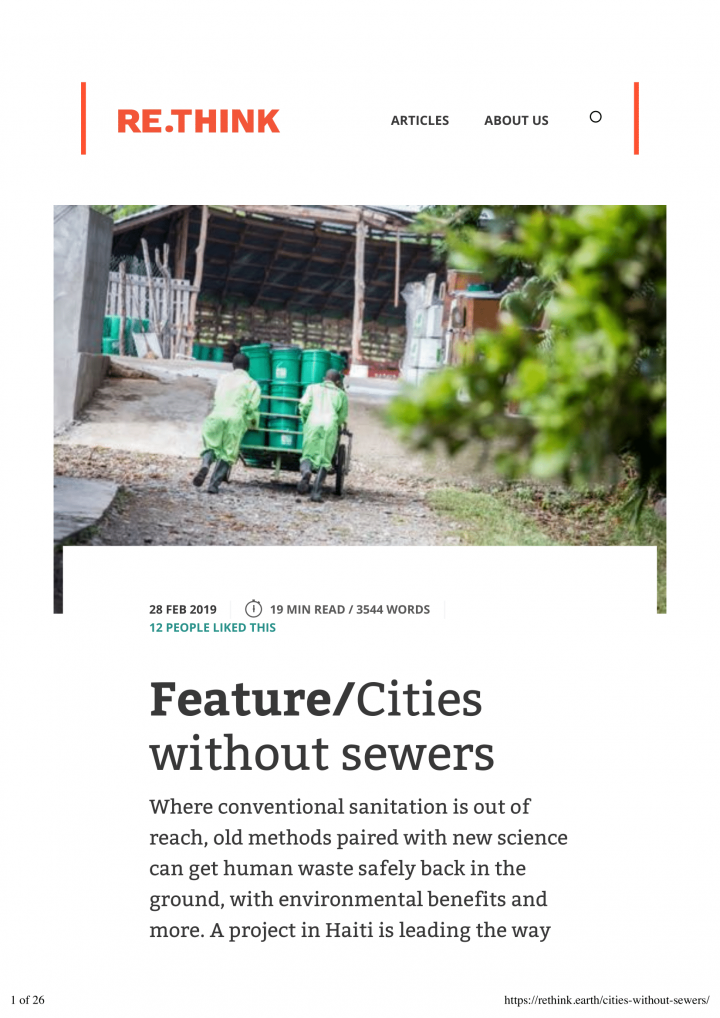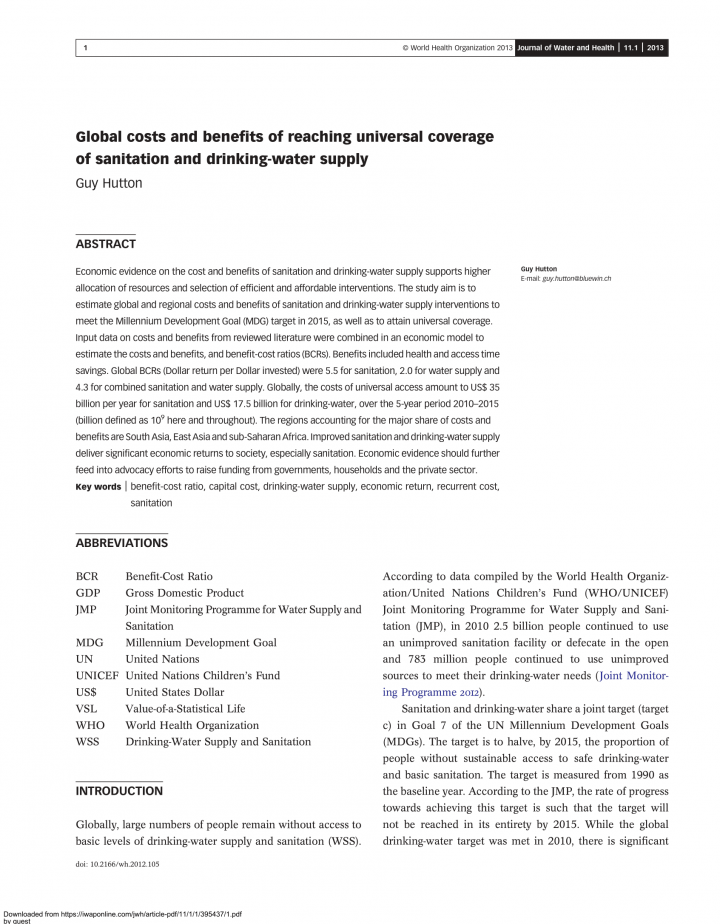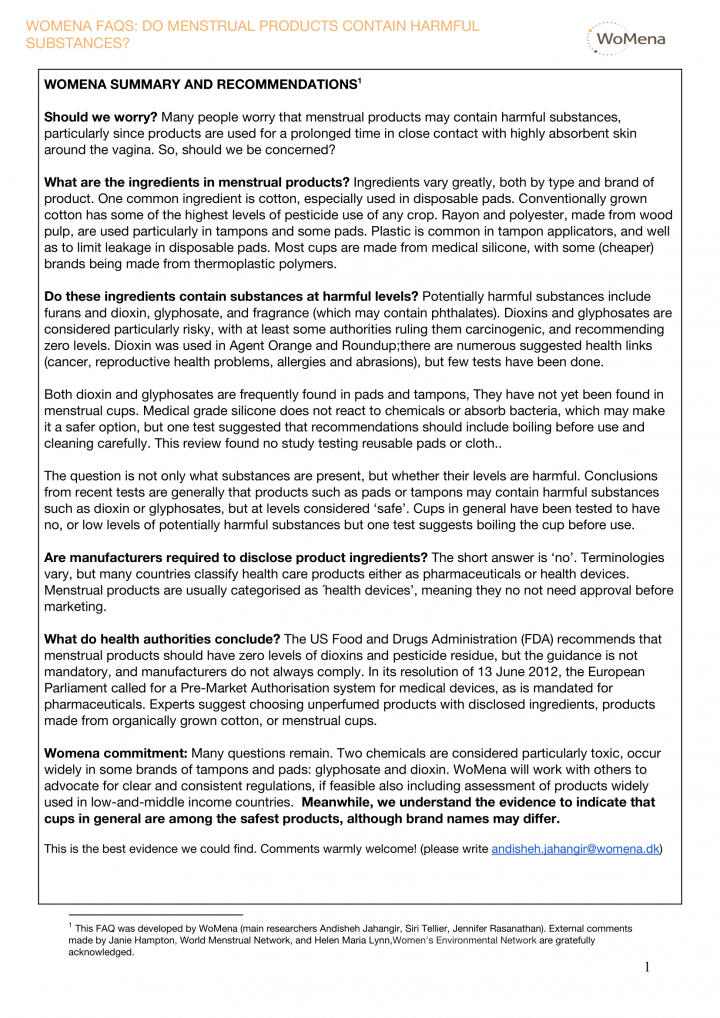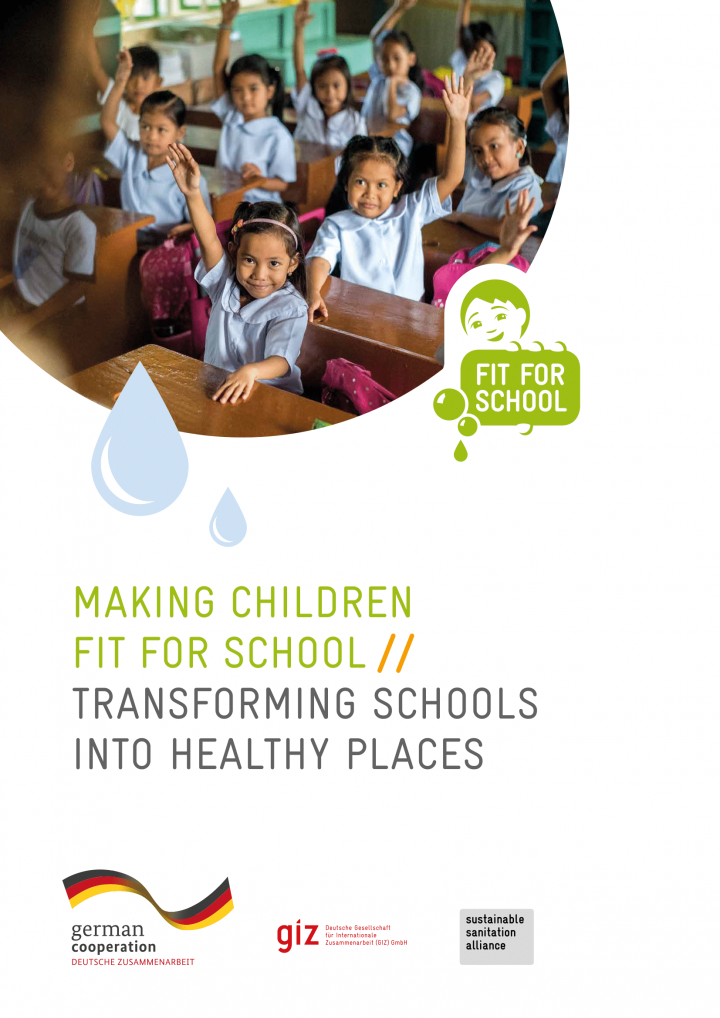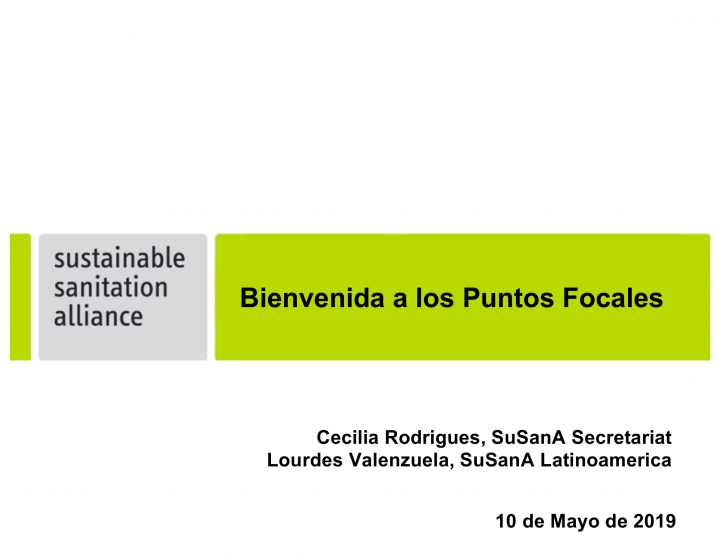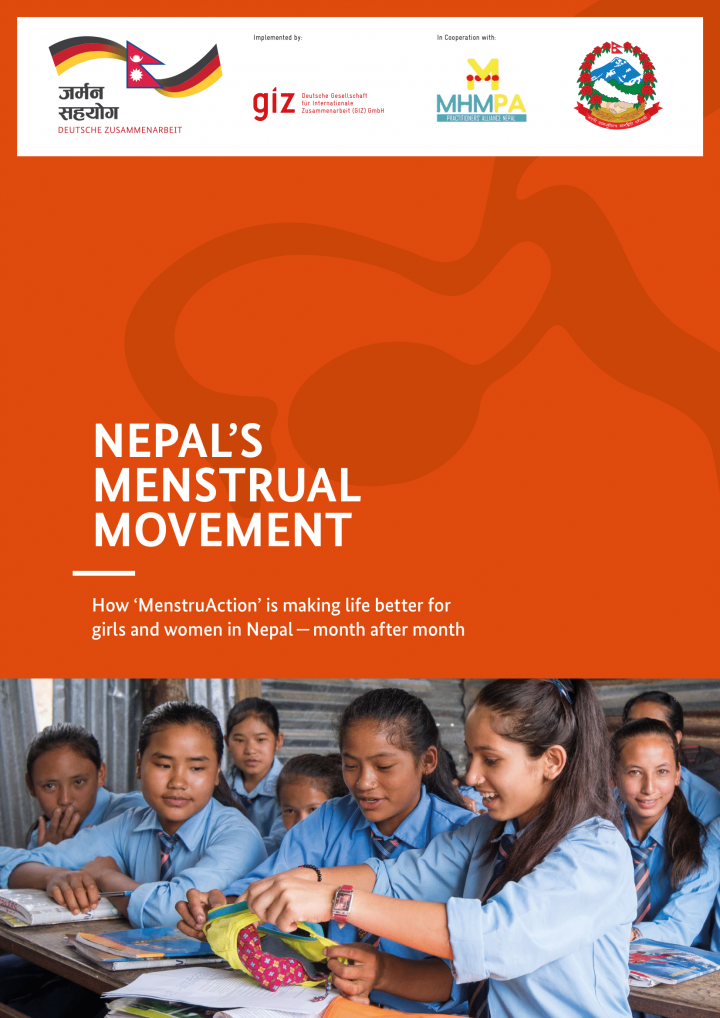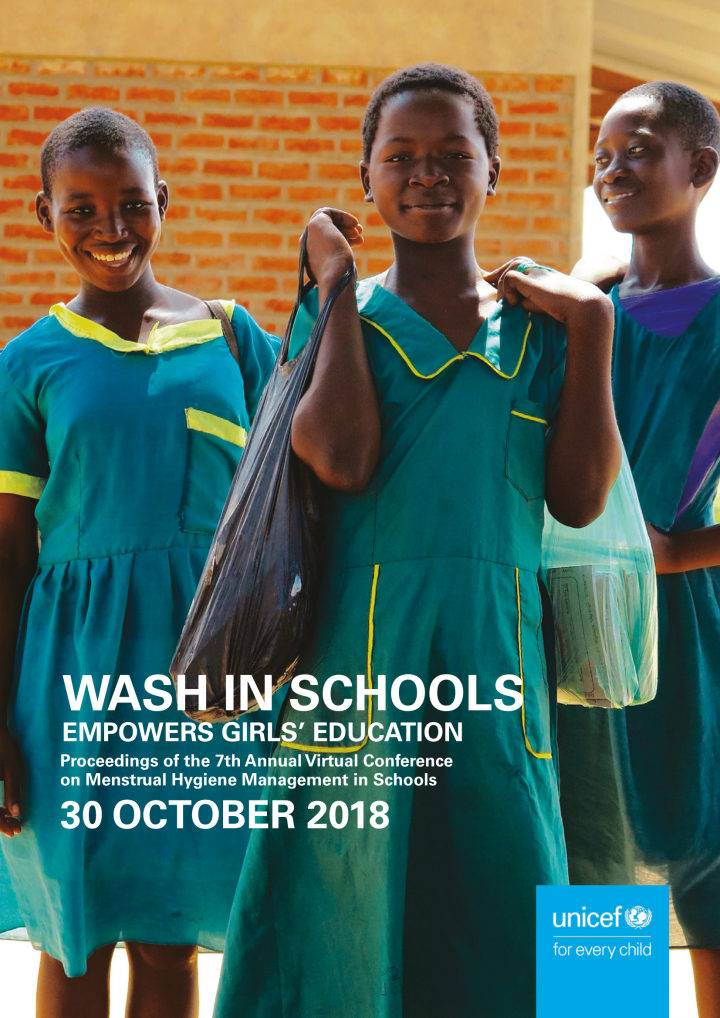Wald, C. (2019) Cities without sewers (English, Creole)
Where conventional sanitation is out of reach, old methods paired with new science can get human waste safely back in the ground, with environmental benefits and more. A project in Haiti is leading the way for cities without sewers.
SMCR (2019) SMCR Conference Abstract Program
It seems people these days can’t stop talking about periods. From derision by presidential candidates, to taboo-breaking Instagrammers and marathoners, menstruation is no longer in the closet. The Society for Menstrual Cycle Research (SMCR) has been building the evidence base and articulating menstruation’s role in health and well-being for over 40 years. SMCR was the first multidisciplinary organization to actively promote research on reproductive health, […]
Al Saleh, T. (2019) Faecal Sludge Management Operational Manual
Due to the lack of investment in a proper sanitation system in the Philippines - including sewage collection and treatment - close to 20% of the population (approx. 20 million) suffer from inadequate access to sanitation and 9 million rely on unsafe water sources. Additionally, a significant portion of the population is resorting to open defecation (6 million) as a negative coping mechanism, further contributing […]
ISF-UTS and SNV (2019) Scheduled emptying services as an entry point for change
Addressing urban sanitation requires a concurrent focus on both infrastructure and service delivery systems. Where on-site sanitation is the main type of sanitation, as in the programme cities, a focus on safe faecal sludge management was required. Regular emptying of on-site containment systems is a key service delivery challenge that provides an entry point for improving urban sanitation programming. This report has summarised the key […]
Badu, E., Owusu-Manu, G., Donkor-Hyiaman, K. A., Conway, C., Edwards, D. J. (2015) Innovative Financing Mechanisms for Delivering Sanitation Infrastructure
The study identifies four traditional sanitation financing methods through the use of debt, budgetary allocations, donor funds and community-based organizations. Essentially, public private partnerships (PPPs) and private finance initiatives (PFIs) are the most significant innovative financing approaches among fifteen instruments studied. Subsidies, grants and guarantees were also observed to rank as being important and could be useful in enhancing market efficiency. The application of microfinance […]
SNV (2019) Identifying the last 10% of households practising open defecation in rural Tanzania
Since 2017, SNV and the Government of Tanzania have been implementing the Sustainable Sanitation and Hygiene for All (SSH4A) programme in eight Tanzanian districts. To date, the number of households that use toilets has increased to 90%. In the period March–April 2019, SNV Tanzania undertook a household survey in the eight project districts to identify the 10% of households still practising open defecation or sharing […]
Fonseca, C., and Pories, L. (2017) Financing WASH - how to increase funds for the sector while reducing inequities (Position paper for the Sanitation and Water for All Finance Ministers Meeting)
Globally, investments concentrate on the construction of infrastructure (capital expenditure) with insufficient attention on the systems needed to make the water and sanitation infrastructure function properly: regulations, policies, monitoring, institutions and the people that provide WASH services at regional, district and municipal levels. The lack of non-capital expenditure and support for service authorities, service providers and the necessary systems results in high rates of nonfunctionality, […]
Daudey, L. (2018) The cost of urban sanitation solutions: a literature review
The main objective of this paper is to review the literature on and compare the lifecycle costs of full sanitation chain systems in developing cities of Africa and Asia. Overall, financial cost reporting methodologies have been inconsistent and many studies only focus on capital costs or do not report cost data on desludging, transport and treatment. In addition, a comparative analysis of raw cost data […]
OECD (2010) Innovative Financing Mechanisms for the Water Sector
This report examines innovative financing mechanisms that can help attract new financial resources into water and sanitation services (WSS ). A particular focus is placed on mobilising market-based repayable financing (such as loans, bonds and equity) as a way of bridging the financial gap to meet the Millennium Development Goals and other crucial sector objectives. The Camdessus and Gurria reports, published in 2003 and 2006 […]
UN (2018) Sustainable Development Goal 6 Synthesis Report 2018 on Water and Sanitation
The establishment of SDG 6, Ensure availability and sustainable management of water and sanitation for all, reflects the increased attention on water and sanitation issues in the global political agenda. The 2030 Agenda lists rising inequalities, natural resource depletion, environmental degradation and climate change among the greatest challenges of our time. It recognizes that social development and economic prosperity depend on the sustainable management of […]
Hutton, G. (2013) Global costs and benefits of reaching universal coverage of sanitation and drinking-water supply
Economic evidence on the cost and benefits of sanitation and drinking-water supply supports higher allocation of resources and selection of efficient and affordable interventions. The study aim is to estimate global and regional costs and benefits of sanitation and drinking-water supply interventions to meet the Millennium Development Goal (MDG) target in 2015, as well as to attain universal coverage. Input data on costs and benefits from reviewed literature were […]
WoMena (2019) WoMena FAQ: Do menstrual products contain harmful substances?
Should we worry? Many people worry that menstrual products may contain harmful substances, particularly since products are used for a prolonged time in close contact with highly absorbent skin around the vagina. So, should we be concerned? What are the ingredients in menstrual products? Ingredients vary greatly, both by type and brand of product. One common ingredient is cotton, especially used in disposable pads. Conventionally […]
Cardone, R., Fonseca, C. (2006) Innovative Financing Experiences with Secondary Urban Centres Water Supply and Sanitation Service Delivery
Secondary urban centres vary widely, both in terms of economic base and water service delivery models. Moreover, what constitutes a Secondary urban centres in one part of the world may be deemed to be something else somewhere else. For example, what might be regarded as Secondary urban centres in India and China might be considered to be small cities in Africa. This paper specifically deals […]
GIZ (2019) Making Children Fit For School Transforming Schools Into Healthy Places
The F4S approach uses the school setting to support the institutionalization of health-promoting behaviour of children. This includes washing hands with soap, brushing teeth with fluoride toothpaste, daily cleaning of sanitary facilities, etc. The measures in schools include a clear set of rules for routine group activities, simple infrastructural measures such as group washing facilities and accompanyingmeasures such as public cleaning plans. The Regional F4S […]
UNU-IAS (2018) Innovation in Local and Global Learning Systems for Sustainability Ensure Healthy Lives and Promote Well-being for All - Experiences of Community Health, Hygiene, Sanitation and Nutrition
Health is a sustainability subject with diverse intersectoral linkages across several SDGs. The scope of SDG 3 – Ensure healthy lives and promote well-being for all at all ages – is broad and ambitious. As highlighted through these case studies, sustainability education and participatory, multi-stakeholder learning and action have significant impact in improving health, sanitation and hygiene, nutrition as well as overall well-being. Health promotion […]
Rodriguez, C., Valenzuela, L. (2019) Bienvenida Puntos Focales SuSanA Latinoamerica (in Spanish) Welcome to the Focal Points for SuSanA Latin America
12 slides de introducción a SuSanA Latinoamerica, cronograma, responsabilidades y acciones.
SuSanA (2020) Everything there is to know about the SuSanA Discussion Forum
These presentations provides you with detailed information about the SuSanA Discussion Forum. You can use these slides in your own presentations if you want to explain the Discussion Forum to somebody. The most recent presentation is called "The Discussion Forum - latest developments, results from user survey and from member analysis" (last updated: December 2020). The presentation "Everything there is to know about the SuSanA Discussion Forum" […]
Evans, R., Broch Alvarez, V. (2019) Nepal´s Menstrual Movement - How MenstruAction is making life better for girls and women in Nepal - month after month
Nepal’s Menstrual Movement – The topic MHM has gained considerable momentum in Nepal since the earthquake in 2015. The fantastic work of development initiatives and activists of the MHM Practitioner Alliance Nepal is documented in the report ‘Nepal’s Menstrual Movement’. It has been launched on MH Day 2019 parallel in Berlin and Kathmandu and is available for download here. This report is not meant as a […]
UNICEF (2018) WASH in Schools Empowers Girls´ Education Proceedings of the 7th Annual Virtual Conference on Menstrual Hygiene Management in Schools
Action to improve menstrual hygiene management (MHM) for schoolgirls in low- and middleincome countries continues to gather momentum around the world. The annual virtual conference on MHM in schools shared recent evidence and programmes that illustrate the continuing progress in the field. The conference provides a vital global platform for practitioners and policy makers to share ideas, discuss approaches to common problems, and to assess […]
Slaymaker, T., Johnston, R., Chatterley, C. (2018) Global Monitoring of MHM in Schools
The presentation provides data to the following questions: - Where is MHM in schools in the SGDs? - Are national baselines available? - What indicators are being monitored and through what sources? - What actions are needed to improve monitoring?
